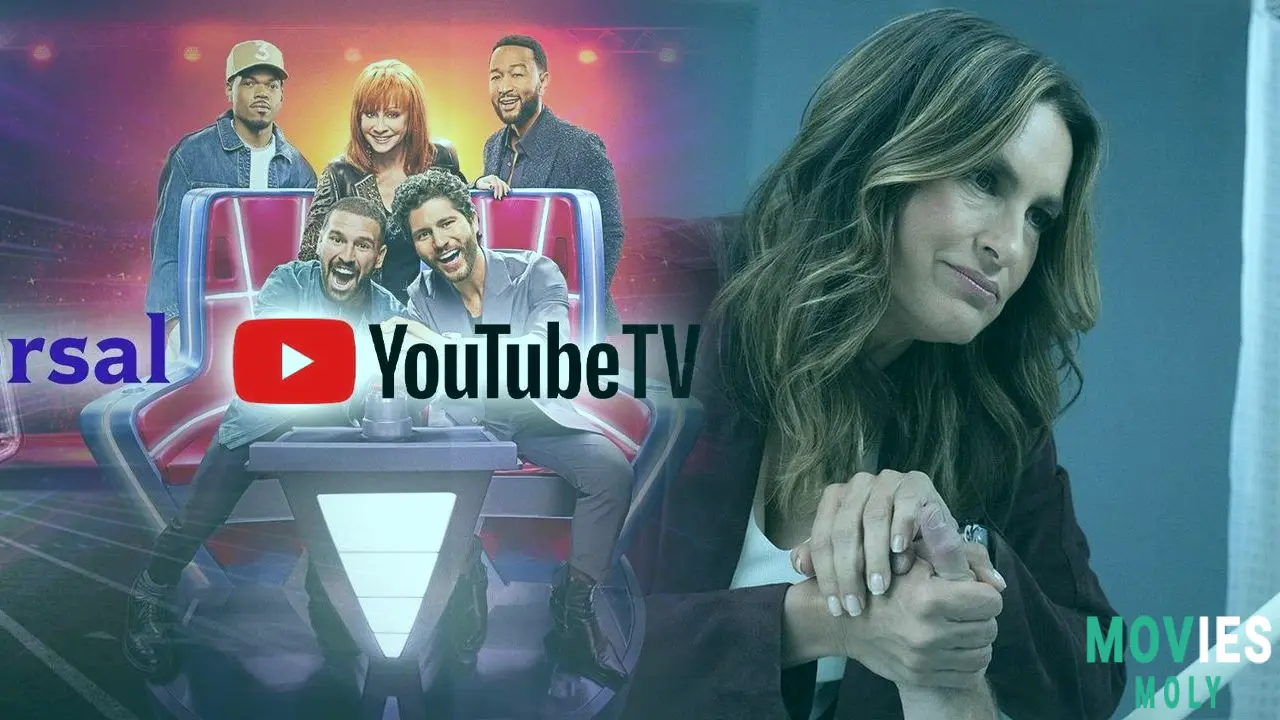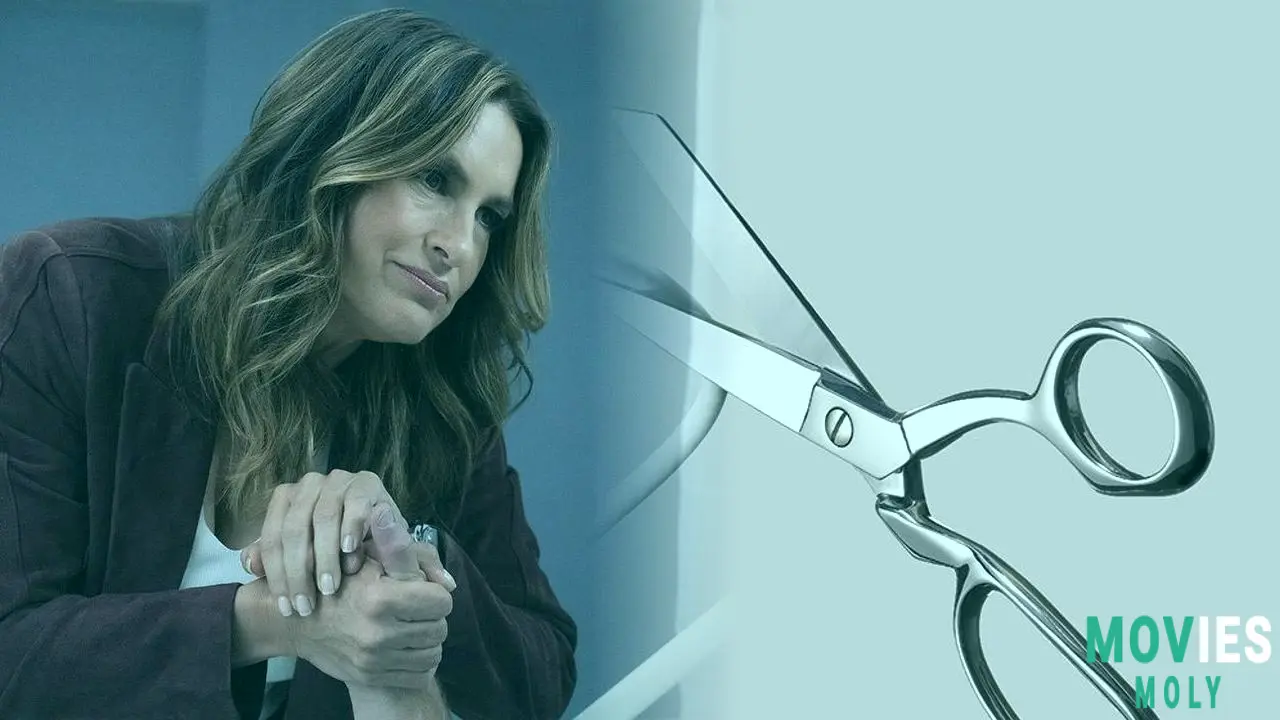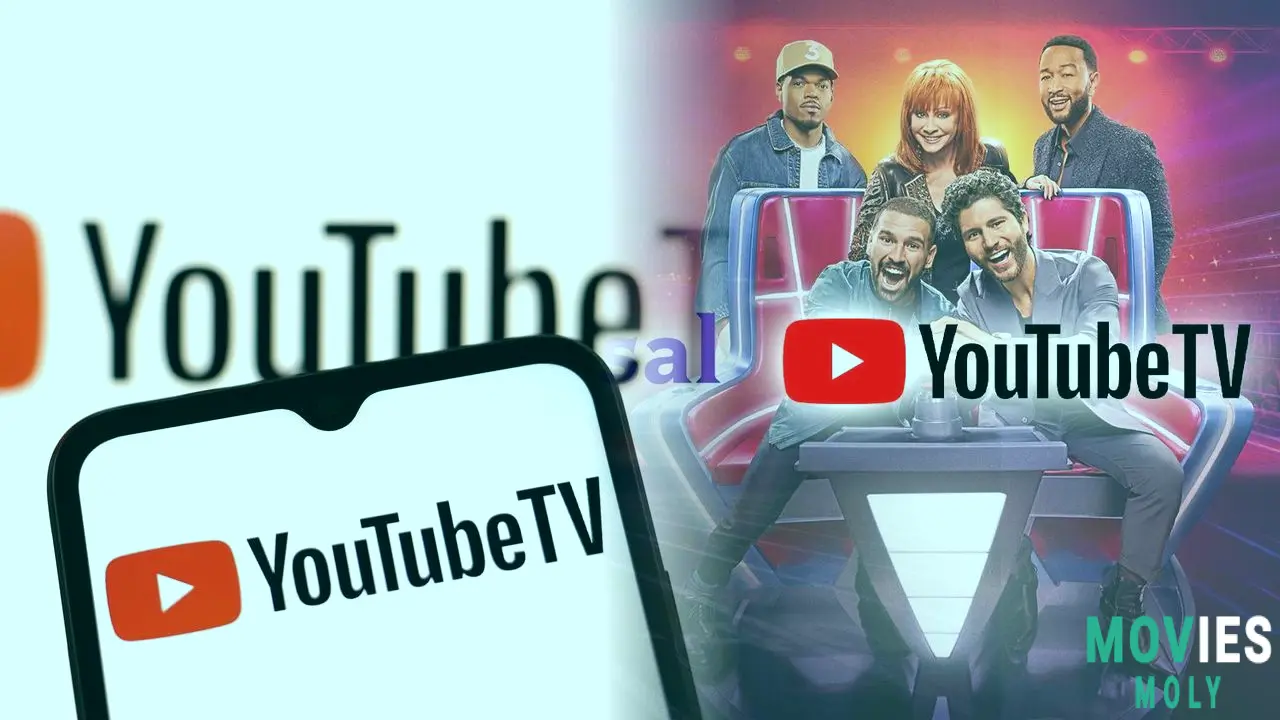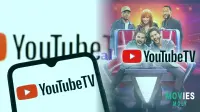Okay, internet, grab your popcorn and get ready for some good news! For all you Law & Order fanatics, Bravo loyalists, and anyone who enjoys their dose of NBCUniversal content without a traditional cable box, you can breathe a sigh of relief. The digital drama has settled, at least for now. NBCUniversal and Youtube Tv just hammered out a new carriage deal. That means all your go-to NBC, Bravo, USA, Syfy, E!, CNBC, MSNBC, Oxygen, and Golf Channel shows are staying put for YouTube TV subscribers. Phew!
This news comes after some serious nail-biting, as the clock was ticking down to a potential blackout. Imagine a world without Sunday Night Football or new episodes of The Real Housewives suddenly gone from your streaming lineup. That was the very real threat looming over millions of households. But, like a superhero swooping in at the last moment, an agreement was reached, preventing a massive disruption for YouTube TV’s approximately 10 million subscribers. Let's get into the details of what went down and what it all means for your viewing pleasure.
The Great Escape: How NBCUniversal and YouTube TV Avoided a Content CatastropheThe deal between NBCUniversal and YouTube TV wasn't just about keeping existing channels. It's a comprehensive agreement that covers a lot of ground. Not only do the current NBCU and Versant channels (Versant is a new entity for some NBCU cable holdings) remain available, but the agreement also includes carriage for a new cable channel, NBC Sports Network, which NBCU plans to launch later this year. This is a big win for sports fans!
From the Brink: A Last-Minute Agreement Keeps Your Beloved Content Streaming
The negotiations were tense, going right down to the wire. At midnight ET on Wednesday, or 9 p.m. PT on Tuesday, the companies had only agreed to a short-term extension to continue talks. Without that extension and a full agreement, a wide array of NBCUniversal channels would have gone dark on YouTube TV. Think about it: shows like Saturday Night Live, The Voice, and major sports like NBA and Premier League could have vanished. Head of PlayStation Productions Asad Qizilbash claimed Sony Pictures is working on the Helldivers 2 movie.
Matt Schnaars, president of platform distribution & partnerships at NBCUniversal, called the new agreement with Google "a clear win for both our business and our viewers." He highlighted how it solidifies access to their "full portfolio of broadcast and cable networks" on YouTube TV. Justin Connolly, vice and global head of media & sports at YouTube, echoed this sentiment, stating the deal "builds on our long-standing partnership with NBCU." It's good to know the big players are shaking hands, ensuring uninterrupted entertainment for us viewers.
The Sticking Point: Peacock's Presence and the Direct Ingestion Debate
One of the biggest issues in these talks involved Peacock, NBCUniversal’s streaming service. YouTube TV was pushing for "direct ingestion" of Peacock content into its own platform. This would mean that shows exclusive to Peacock, like the hit reality series Love Island, could be watched directly within the YouTube TV app. YouTube's goal here was to strengthen its position as a dominant pay-TV distributor and boost Google's ad business on smart TVs.
However, NBCUniversal stood firm against this. They want Peacock to remain a standalone service. Why? To maintain control over subscriber data and its ability to sell targeted ads. NBCU is investing billions into Peacock, and they need it to thrive independently. Ultimately, YouTube TV did not get the direct ingestion of Peacock content into its ecosystem. Instead, Peacock will become available on YouTube Primetime Channels and through Google TV devices. This is a compromise that lets YouTube TV users access Peacock, but it keeps Peacock separate, just as NBCU wanted. This specific detail reveals a lot about the ongoing power struggles between tech giants and traditional media companies in the streaming era.
Beyond the Blackout: YouTube TV's Broader Content Confrontations

While the NBCUniversal deal brought relief, it's important to remember this wasn't an isolated incident. YouTube TV has been in the thick of several carriage disputes recently, reflecting its growing influence and unique position in the TV landscape.
A Separate Shadow: Univision's Unfortunate Exit and Its Specific Impact
Unfortunately, not all negotiations ended as happily as the NBCU one. Just before the NBCUniversal deal was finalized, TelevisaUnivision’s networks, including the major Hispanic broadcast outlet Univision, went dark on YouTube TV. TelevisaUnivision and YouTube TV could not agree on carriage terms. This situation had a particularly significant and unfortunate impact on Spanish-speaking households.
TelevisaUnivision issued a stern statement, claiming Google’s actions were "tone-deaf and egregious," especially during Hispanic Heritage Month. They accused YouTube TV of disregarding appeals from government officials and Hispanic organizations. YouTube’s response was that TelevisaUnivision represented only "a tiny fraction of overall consumption" on YouTube TV, despite having a massive subscriber base on the main YouTube platform. They encouraged viewers to watch Univision content on their YouTube channels or streaming platform, ViX. This stark contrast with Telemundo (owned by NBCU) remaining on YouTube TV highlights the complex and sometimes sensitive nature of these business battles.
YouTube TV's Increasing Clout and Its Pattern of Content Showdowns
YouTube TV has grown into a significant player in the U.S. pay-TV market. It has surpassed 10 million subscribers and is now the #4 operator, a remarkable feat just eight years after its launch. While traditional cable companies are losing subscribers to cord-cutting, YouTube TV is expanding. This growth, combined with parent company Google's immense $3 trillion market cap, gives YouTube TV considerable leverage in negotiations. Media companies often cite Google's deep pockets, suggesting it makes the service less willing to compromise.
This isn't YouTube TV's first rodeo. Prior to the NBCU and TelevisaUnivision dustups, YouTube TV had nearly blacked out Paramount and Fox networks. They managed to reach deals with both media companies after tensions spilled into public view. NBCU even warned viewers that YouTube was "at it again" during their own negotiations. These recurring showdowns underscore a broader shift in the media landscape, where tech giants are now key distributors, challenging traditional content providers.
And the battles aren't over. YouTube TV's carriage contract with Disney, which includes ABC and ESPN, is set to expire in October. Disney and YouTube TV had a similar disagreement in 2021, which resulted in a temporary loss of Disney content on the platform. So, keep an eye out for more content drama on the horizon.
What This Means for Your Viewing Habits and the Shifting Future of Television

These carriage disputes are more than just behind-the-scenes business arguments. They have direct effects on what you can watch, how you watch it, and how much you pay.
The Ever-Present Price Tag: Who Bears the Cost in Content Negotiations?
A core disagreement often revolves around money. NBCUniversal accused YouTube TV of "refused the best rates and terms in the market," demanding "preferential treatment" and seeking "an unfair advantage" over competitors. They even claimed YouTube TV wanted to "control what Americans see online through search and ads—now it wants to control what we watch." Strong words!
YouTube TV, on the other hand, countered that NBCUniversal was "asking us to pay more than what they charge consumers for the same content on Peacock." To ease subscriber concerns during the dispute, YouTube TV had offered a $10 credit if NBC content became unavailable for an extended period. These accusations highlight the fundamental tension: media companies want to be fairly compensated for their content, while distributors like YouTube TV aim to provide value to their subscribers without excessive price hikes.
A Changing Landscape: The Clash Between Tech Giants and Legacy Media
The current media landscape is a complex mix of old and new. YouTube, as a whole, now accounts for the largest share of TV viewing in the U.S., surpassing even Netflix and traditional media companies, according to Nielsen. Its cable-like subscription service, YouTube TV, is a major player, growing rapidly while traditional cable and satellite providers are shrinking. This dynamic creates a powerful leverage point for YouTube TV.
The debates over "direct ingestion" of streaming content reflect the core tension of this era. Media companies are investing heavily in their standalone streaming apps (like Peacock) and want to drive subscribers there. Distributors like YouTube TV want to offer a consolidated viewing experience. Analysts believe that these battles "will have important strategic implications for the future of media." For traditional media companies, losing carriage on a platform like YouTube TV could cut revenue and shrink subscriber bases. For Google, losing popular content could weaken YouTube TV's appeal on connected TVs. It's a high-stakes game where both sides have a lot to lose.
So, while your favorite NBCUniversal shows are safe on YouTube TV for now, this agreement is just one chapter in a much larger story. The ongoing negotiations between powerful tech companies and established media giants are constantly reshaping how we consume entertainment. For now, enjoy your uninterrupted viewing, but remember, the world of streaming is always just one contract away from another dramatic cliffhanger!



